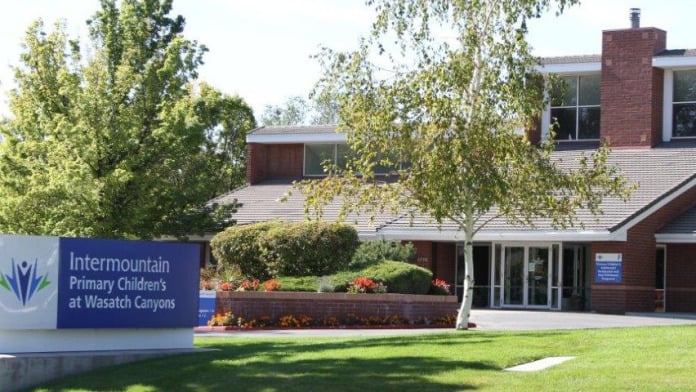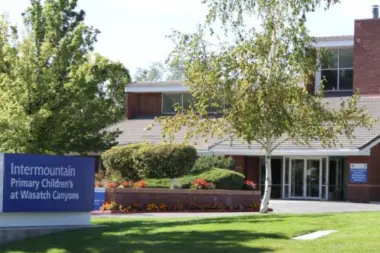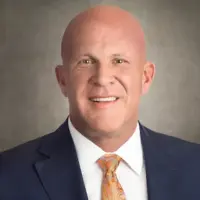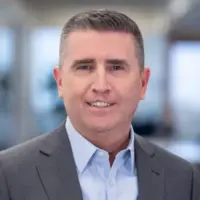About Primary Childrens Hospital – Behavioral Health
Primary Children’s Hospital–Behavioral Health is in Salt Lake City, Utah, at the University of Utah campus. This facility is near the foothills of the Wasatch Mountains, near the Hogle Zoo, the Red Butte Garden, and the Natural History Museum of Utah. Primary Children’s Hospital is one of the top pediatric and adolescent care facilities.
Behavioral and Emotional Health Care for Children and Adolescents
This behavioral health facility offers behavioral and emotional health services for children, adolescents, and their families. The facility has a highly-skilled team of psychiatrists, psychologists, therapists, social workers, and more. These specialists provide vital care to those who are going through a crisis or are at risk for self-harm.
Treatment plans are evidence-based and focus on those patients that are struggling with substance use, behavioral issues, and emotional disturbances. Primary Children’s Hospital offers crisis intervention including outpatient and inpatient care.
Physicians and clinicians offer evaluations, medication assistance, and other services to help support and care for patients. I read that this facility has a family-oriented approach, meaning the staff works with their clients and family members to have them involved and proactive. Parents have stated that Primary Children’s Hospital has left them feeling connected and respected.
Commitment to Family Involvement and Education
This behavioral health facility at the University of Utah in Salt Lake City, Utah, has a commitment to education, providing on-site school programs as the facility is a well-established university, committed to providing prime educational opportunities to clients.
Primary Children’s Hospital works with families and their educational support structure. They encourage family care and support through treatment planning and recreational opportunities on-site.
They provide family assistance to those who need better help understanding their financial options. This behavioral health facility accepts Medicaid and private insurance.
Facility Overview
Latest Reviews
We're very sorry to hear about your experience, but are grateful for your feedback and the chance it gives us to improve. If you'd like, please reach out to our Clinical Relations team at 855-442-7855 or patientfeedback@imail.org. We look forward to hearing from you.
Sheila, we're very sorry to hear about your experience but are grateful for your feedback and the chance it gives us to improve. If you'd like, please reach out to our Clinical Relations team at 855-442-7855 or patientfeedback@imail.org. We look forward to hearing from you.
Ashlynn, we're very sorry to hear about your experience but are grateful for your feedback and the chance it gives us to improve. If you'd like, please reach out to our Clinical Relations team at 855-442-7855 or patientfeedback@imail.org. We look forward to hearing from you.
Rehab Score
Gallery


Accepted Insurance
Other Forms of Payment
Private insurance refers to any kind of healthcare coverage that isn't from the state or federal government. This includes individual and family plans offered by an employer or purchased from the Insurance Marketplace. Every plan will have different requirements and out of pocket costs so be sure to get the full details before you start treatment.
Self-pay involves paying for treatment out of your own pocket. You can use savings or credit, get a personal loan, or receive help from family and friends to fund your treatment. If you don't have insurance or your insurance plan doesn't cover a specific program, self-pay can help ensure you still get the care you need.
Financial aid can take many forms. Centers may have grants or scholarships available to clients who meet eligibility requirements. Programs that receive SAMHSA grants may have financial aid available for those who need treatment as well. Grants and scholarships can help you pai for treatment without having to repay.
Medicare is a federal program that provides health insurance for those 65 and older. It also serves people under 65 with chronic and disabling health challenges. To use Medicare for addiction treatment you need to find a program that accepts Medicare and is in network with your plan. Out of pocket costs and preauthorization requirements vary, so always check with your provider.
Addiction Treatments
Levels of Care
Outpatient Programs (OP) are for those seeking mental rehab or drug rehab, but who also stay at home every night. The main difference between outpatient treatment (OP) and intensive outpatient treatment (IOP) lies in the amount of hours the patient spends at the facility. Most of the time an outpatient program is designed for someone who has completed an inpatient stay and is looking to continue their growth in recovery. Outpatient is not meant to be the starting point, it is commonly referred to as aftercare.
Residential treatment programs are those that offer housing and meals in addition to substance abuse treatment. Rehab facilities that offer residential treatment allow patients to focus solely on recovery, in an environment totally separate from their lives. Some rehab centers specialize in short-term residential treatment (a few days to a week or two), while others solely provide treatment on a long-term basis (several weeks to months). Some offer both, and tailor treatment to the patient's individual requirements.
Treatments
Many of those suffering from addiction also suffer from mental or emotional illnesses like schizophrenia, bipolar disorder, depression, or anxiety disorders. Rehab and other substance abuse facilities treating those with a dual diagnosis or co-occurring disorder administer psychiatric treatment to address the person's mental health issue in addition to drug and alcohol rehabilitation.
Mental health rehabs focus on helping individuals recover from mental illnesses like bipolar disorder, clinical depression, anxiety disorders, schizophrenia, and more. Mental health professionals at these facilities are trained to understand and treat mental health issues, both in individual and group settings.
Programs
Recovery is most successful when clients feel accepted and validated by their peers and treatment providers. Facilities that offer LGBTQ-inclusive programming are committed to creating a safe space where everyone can grow and recover without fear of judgment or discrimination. They will have dedicated policies in place to create a safe and supportive environment that fosters free expression.
Clinical Services
Cognitive Behavioral Therapy (CBT) is a therapy modality that focuses on the relationship between one's thoughts, feelings, and behaviors. It is used to establish and allow for healthy responses to thoughts and feelings (instead of unhealthy responses, like using drugs or alcohol). CBT has been proven effective for recovering addicts of all kinds, and is used to strengthen a patient's own self-awareness and ability to self-regulate. CBT allows individuals to monitor their own emotional state, become more adept at communicating with others, and manage stress without needing to engage in substance abuse.
Whether a marriage or other committed relationship, an intimate partnership is one of the most important aspects of a person's life. Drug and alcohol addiction affects both members of a couple in deep and meaningful ways, as does rehab and recovery. Couples therapy and other couples-focused treatment programs are significant parts of exploring triggers of addiction, as well as learning how to build healthy patterns to support ongoing sobriety.
Dialectical Behavior Therapy (DBT) is a modified form of Cognitive Behavioral Therapy (CBT), a treatment designed to help people understand and ultimately affect the relationship between their thoughts, feelings, and behaviors. DBT is often used for individuals who struggle with self-harm behaviors, such as self-mutilation (cutting) and suicidal thoughts, urges, or attempts. It has been proven clinically effective for those who struggle with out-of-control emotions and mental health illnesses like Borderline Personality Disorder.
Eating disorders include anorexia, bulimia, binge eating, and dysfunctional eating patterns. Many psychologists and other mental health professionals consider eating disorders to be food addictions, meaning food is being used in an addictive way (similar to drug or alcohol addiction). Certain substance abuse treatment programs will have treatment for eating disorders as one of the services offered. An eating disorder may also present as a co-occuring disorder or dual diagnosis alongside drug and alcohol addiction.
Research clearly demonstrates that recovery is far more successful and sustainable when loved ones like family members participate in rehab and substance abuse treatment. Genetic factors may be at play when it comes to drug and alcohol addiction, as well as mental health issues. Family dynamics often play a critical role in addiction triggers, and if properly educated, family members can be a strong source of support when it comes to rehabilitation.
Group therapy is any therapeutic work that happens in a group (not one-on-one). There are a number of different group therapy modalities, including support groups, experiential therapy, psycho-education, and more. Group therapy involves treatment as well as processing interaction between group members.
In individual therapy, a patient meets one-on-one with a trained psychologist or counselor. Therapy is a pivotal part of effective substance abuse treatment, as it often covers root causes of addiction, including challenges faced by the patient in their social, family, and work/school life.
Trauma therapy addresses traumatic incidents from a client's past that are likely affecting their present-day experience. Trauma is often one of the primary triggers and potential causes of addiction, and can stem from child sexual abuse, domestic violence, having a parent with a mental illness, losing one or both parents at a young age, teenage or adult sexual assault, or any number of other factors. The purpose of trauma therapy is to allow a patient to process trauma and move through and past it, with the help of trained and compassionate mental health professionals.
Staff

Robert (Rob) Allen
President & CEO

Clay Ashdown
CFO

Nannette Berensen
COO

Heather Brace
Chief People Officer

David Flood
Chief Development Officer

Dan Liljenquist
Chief Strategy Officer

Greg Matis
Chief Legal Officer

Mandy Richards, RN
Chief Nursing Executive
Contact Information
81 North Mario Capecchi Drive
Salt Lake City, UT 84113




